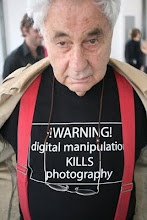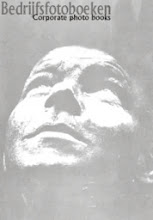San José, Costa Rica Hotel Irazu, 21 Juni 1979
Photographer Koen Wessing died on Wednesday at the age of 69. The Dutch photographer, who worked for the Hollandse Hoogte press agency, was well known for his photographic stories. Wessing received international acclaim for his work in Chile during the aftermath of the military coup of 1973.
Koen Wessing felt a strong connection with the oppressed peoples of the world. He closely followed the revolutions in both Nicaragua and El Salvador in the late 20th century. In 1983, Wessing travelled to China. His photography provided us with a window on a country still very much closed to the rest of the world. He also worked in Guinea-Bissau, Afghanistan, Burundi, Indonesia, Albania and Romania.
Wessing was also acknowledged for his images of the lives of immigrants and religious sects in the Netherlands. He was known as an artist who was dedicated to the people he photographed.
An exhibition of his work on the Chilean coup of 1973 will open in Santiago de Chile on March 7th. He had wanted to ‘return the images to the Chilean people’, but did not live to be present in person.
Koen Wessing with prints for his exhibition in Santiago from Jeroen de Vries on Vimeo.
Henk Otte - Koen Wessing from dutchdoc on Vimeo.
Koen Wessing a photographer 10 years after a Revolution from Rob Brouwer on Vimeo.
Commenting on the book, Parr & Badger in their reference work, “The Photobook: A History” wrote, "The Dutch photographer Koen Wessing was on the streets of Santiago immediately after the coup happened. His gritty documentary pictures were quickly published in this no frills, extremely elegant photobook … There are not many images in the book, but each is carefully considered, modest and succinct ... despite the difficulties of taking photographs in such a tense and difficult situation. The main thrust of the book is the coup’s immediate aftermath, the shock and grief of the people, the rounding up of Allende’s supporters by the Army, and their herding into the now notorious National Stadium in Santiago, where many would be tortured and killed. Wessing vividly captures one of these executions, in a two-page sequence that forms the book’s climax.”
Errata Editions
Koen Wessing: Chili, September 1973
Books on Books No. 8
Text by Pauline Terreehorst, Jeffrey Ladd.
Koen Wessing's Chili, September 1973 is a shocking account of government brutality, from a socially concerned and politically engaged Dutch photojournalist who has gone on to make similarly powerful images in Ireland, Chile, Guinea-Bissau, Nicaragua, El Salvador, China, Berlin and Amsterdam. First published in 1973, just months after the fall of Salvador Allende to Augusto Pinochet's coup d'etat, it describes the tense days of the military attempt to root out public opposition in the streets of Santiago, and has since become one of documentary photography's most exemplary moments. This entry in Errata Editions' Books on Books series reproduces every spread from Wessing's gritty documentation of Chile's darkest historical moment; art historian and film theorist Pauline Terreehorst contributes a contemporary essay titled “The Man in the Grey Suit: Koen Wessing: Chili 1973.”
Koen Wessing | Promote Your Page Too

























Geen opmerkingen:
Een reactie posten